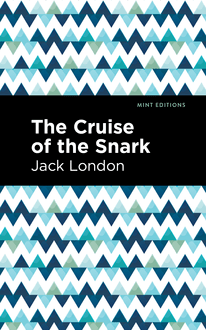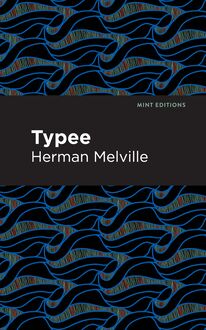-
 Univers
Univers
-
 Ebooks
Ebooks
-
 Livres audio
Livres audio
-
 Presse
Presse
-
 Podcasts
Podcasts
-
 BD
BD
-
 Documents
Documents
-
- Cours
- Révisions
- Ressources pédagogiques
- Sciences de l’éducation
- Manuels scolaires
- Langues
- Travaux de classe
- Annales de BEP
- Etudes supérieures
- Maternelle et primaire
- Fiches de lecture
- Orientation scolaire
- Méthodologie
- Corrigés de devoir
- Annales d’examens et concours
- Annales du bac
- Annales du brevet
- Rapports de stage
La lecture à portée de main
Vous pourrez modifier la taille du texte de cet ouvrage
Découvre YouScribe en t'inscrivant gratuitement
Je m'inscrisDécouvre YouScribe en t'inscrivant gratuitement
Je m'inscrisEn savoir plus
Vous pourrez modifier la taille du texte de cet ouvrage
En savoir plus

Description
History of a Six Weeks’ Tour (1817) is a travelogue by Mary Shelley and Percy Bysshe Shelley. Composed of journal entries, letters, and a poem, History of a Six Weeks’ Tour was published anonymously with a preface by Percy. Detailing their stay in Switzerland during the legendary “year without a summer,” the travelogue was Mary’s first published work and remains an invaluable text for the study of English Romanticism. When Percy Bysshe Shelley met Mary Godwin, he had initially planned to acquaint himself with her father, a famous philosopher. Soon, however, the pair fell in love and eloped with Claire Clairmont, Mary’s stepsister. They journeyed through France, Switzerland, Germany, and the Netherlands before returning home with little money and without the support of their families. In 1816, following the death of their first child, Percy and Mary travelled with Claire to Geneva, Switzerland, where the infamous Lord Byron had rented a villa along the shores of Lake Geneva. Due to a volcanic eruption in Indonesia, temperatures in Europe and throughout the world plummeted, creating the conditions for the “year without a summer.” Forced to remain indoors for much of their stay, the group soon grew tired of telling one another folk tales and ghost stories to pass the time. On a whim, Byron suggested they all write their own works of fiction, igniting the spark for some of the defining texts of the Romantic era. Having never published her own writing before, Mary unwittingly began mapping out her masterpiece. Frankenstein: or, The Modern Prometheus appeared in print two years later, changing the course of English literature forever. With a beautifully designed cover and professionally typeset manuscript, this edition of Mary Shelley and Percy Bysshe Shelley’s History of a Six Weeks’ Tour is a classic of English literature reimagined for modern readers.
Sujets
Informations
| Publié par | Mint Editions |
| Date de parution | 21 mai 2021 |
| Nombre de lectures | 0 |
| EAN13 | 9781513287713 |
| Langue | English |
| Poids de l'ouvrage | 1 Mo |
Informations légales : prix de location à la page 0,0300€. Cette information est donnée uniquement à titre indicatif conformément à la législation en vigueur.
Extrait
History of a Six Weeks’ Tour
Mary Shelley and Percy Bysshe Shelley
History of a Six Weeks’ Tour was first published in 1917.
This edition published by Mint Editions 2021.
ISBN 9781513282695 | E-ISBN 9781513287713
Published by Mint Editions®
minteditionbooks .com
Publishing Director: Jennifer Newens
Design & Production: Rachel Lopez Metzger
Project Manager: Micaela Clark
Typesetting: Westchester Publishing Services
C ONTENTS F RANCE S WITZERLAND G ERMANY H OLLAND L ETTERS L ETTER I L ETTER II. C OLIGNY —G ENEVA —P LAINPALAIS L ETTER III. T O T. P. E SQ . L ETTER IV. T O T. P. E SQ . L INES M ONT B LANC
I t is now nearly three years since this Journey took place, and the journal I then kept was not very copious; but I have so often talked over the incidents that befell us, and attempted to describe the scenery through which we passed, that I think few occurrences of any interest will be omitted.
We left London July 28th, 1814, on a hotter day than has been known in this climate for many years. I am not a good traveller, and this heat agreed very ill with me, till, on arriving at Dover, I was refreshed by a sea-bath. As we very much wished to cross the channel with all possible speed, we would not wait for the packet of the following day (it being then about four in the afternoon) but hiring a small boat, resolved to make the passage the same evening, the seamen promising us a voyage of two hours.
The evening was most beautiful; there was but little wind, and the sails flapped in the flagging breeze: the moon rose, and night came on, and with the night a slow, heavy swell, and a fresh breeze, which soon produced a sea so violent as to toss the boat very much. I was dreadfully seasick, and as is usually my custom when thus affected, I slept during the greater part of the night, awaking only from time to time to ask where we were, and to receive the dismal answer each time—“Not quite half way.”
The wind was violent and contrary; if we could not reach Calais, the sailors proposed making for Boulogne. They promised only two hours’ sail from shore, yet hour after hour passed, and we were still far distant, when the moon sunk in the red and stormy horizon, and the fast-flashing lightning became pale in the breaking day.
We were proceeding slowly against the wind, when suddenly a thunder squall struck the sail, and the waves rushed into the boat: even the sailors acknowledged that our situation was perilous; but they succeeded in reefing the sail;—the wind was now changed, and we drove before the gale directly to Calais. As we entered the harbour I awoke from a comfortless sleep, and saw the sun rise broad, red, and cloudless over the pier.
F RANCE
E xhausted with sickness and fatigue, I walked over the sands with my companions to the hotel. I heard for the first time the confused buzz of voices speaking a different language from that to which I had been accustomed; and saw a costume very unlike that worn on the opposite side of the channel; the women with high caps and short jackets; the men with earrings; ladies walking about with high bonnets or coiffures lodged on the top of the head, the hair dragged up underneath, without any stray curls to decorate the temples or cheeks. There is, however, something very pleasing in the manners and appearance of the people of Calais, that prepossesses you in their favour. A national reflection might occur, that when Edward III took Calais, he turned out the old inhabitants, and peopled it almost entirely with our own countrymen; but unfortunately the manners are not English.
We remained during that day and the greater part of the next at Calais: we had been obliged to leave our boxes the night before at the English customhouse, and it was arranged that they should go by the packet of the following day, which, detained by contrary wind, did not arrive until night. S*** and I walked among the fortifications on the outside of the town; they consisted of fields where the hay was making. The aspect of the country was rural and pleasant.
On the 30th of July, about three in the afternoon, we left Calais, in a cabriolet drawn by three horses. To persons who had never before seen any thing but a spruce English chaise and post-boy, there was something irresistibly ludicrous in our equipage. A cabriolet is shaped somewhat like a post-chaise, except that it has only two wheels, and consequently there are no doors at the sides; the front is let down to admit the passengers. The three horses were placed abreast, the tallest in the middle, who was rendered more formidable by the addition of an unintelligible article of harness, resembling a pair of wooden wings fastened to his shoulders; the harnesses were of rope; and the postillion, a queer, upright little fellow with a long pigtail, craquèed his whip, and clattered on, while an old forlorn shepherd with a cocked hat gazed on us as we passed.
The roads are excellent, but the heat was intense, and I suffered greatly from it. We slept at Boulogne the first night, where there was an ugly but remarkably good-tempered femme de chambre. This made us for the first time remark the difference which exists between this class of persons in France and in England. In the latter country they are prudish, and if they become in the least degree familiar they are impudent. The lower orders in France have the easiness and politeness of the most well-bred English; they treat you unaffectedly as their equal, and consequently there is no scope for insolence.
We had ordered horses to be ready during the night, but we were too fatigued to make use of them. The man insisted on being paid for the whole post. Ah! Madame , said the femme-de-chambre, pensez-y; c’est pour de dommager les pauvres chevaux d’avoir perdues leur douce sommeil . A joke from an English chamber-maid would have been quite another thing.
The first appearance that struck our English eyes was the want of enclosures; but the fields were flourishing with a plentiful harvest. We observed no vines on this side Paris.
The weather still continued very hot, and travelling produced a very bad effect upon my health; my companions were induced by this circumstance to hasten the journey as much as possible; and accordingly we did not rest the following night, and the next day, about two, arrived in Paris.
In this city there are no hotels where you can reside as long or as short a time as you please, and we were obliged to engage apartments at an hotel for a week. They were dear, and not very pleasant. As usual in France, the principal apartment was a bedchamber; there was another closet with a bed, and an anti-chamber, which we used as a sitting-room.
The heat of the weather was excessive, so that we were unable to walk except in the afternoon. On the first evening we walked to the gardens of the Thuilleries; they are formal, in the French fashion, the trees cut into shapes, and without grass. I think the Boulevards infinitely more pleasant. This street nearly surrounds Paris, and is eight miles in extent; it is very wide, and planted on either side with trees. At one end is a superb cascade which refreshes the senses by its continual splashing: near this stands the gate of St. Denis, a beautiful piece of sculpture. I do not know how it may at present be disfigured by the Gothic barbarism of the conquerors of France, who were not contented with retaking the spoils of Napoleon, but with impotent malice, destroyed the monuments of their own defeat. When I saw this gate, it was in its splendour, and made you imagine that the days of Roman greatness were transported to Paris.
After remaining a week in Paris, we received a small remittance that set us free from a kind of imprisonment there which we found very irksome. But how should we proceed? After talking over and rejecting many plans, we fixed on one eccentric enough, but which, from its romance, was very pleasing to us. In England we could not have put it in execution without sustaining continual insult and impertinence: the French are far more tolerant of the vagaries of their neighbours. We resolved to walk through France; but as I was too weak for any considerable distance, and my sister could not be supposed to be able to walk as far as S*** each day, we determined to purchase an ass, to carry our portmanteau and one of us by turns.
Early, therefore, on Monday, August 8th, S*** and C*** went to the ass market, and purchased an ass, and the rest of the day, until four in the afternoon, was spent in preparations for our departure; during which, Madame L’H ô te paid us a visit, and attempted to dissuade us from our design. She represented to us that a large army had been recently disbanded, that the soldiers and officers wandered idle about the country, and that les Dames seroient certainement enlevèes . But we were proof against her arguments, and packing up a few necessaries, leaving the rest to go by the diligence, we departed in a fiacre from the door of the hotel, our little ass following.
We dismissed the coach at the barrier. It was dusk, and the ass seemed totally unable to bear one of us, appearing to sink under the portmanteau, although it was small and light. We were, however, merry enough, and thought the leagues short. We arrived at Charenton about ten.
Charenton is prettily situated in a valley, through which the Seine flows, winding among banks variegated with trees. On looking at this scene, C*** exclaimed, “Oh! this is beautiful enough; let us live here.” This was her exclamation on every new scene, and as each surpassed the one before, she cried, “I am glad we did not stay at Charenton, but let us live here.”
Finding our ass useless, we sold it before we proceeded on our journey, and bought a mule, for ten Napoleons. About nine o’clock we departed. We were clad in black silk. I rode on the mule, which carried also our portmanteau; S*** and C*** followed, bringing a small basket of pro
-
 Univers
Univers
-
 Ebooks
Ebooks
-
 Livres audio
Livres audio
-
 Presse
Presse
-
 Podcasts
Podcasts
-
 BD
BD
-
 Documents
Documents
-
Jeunesse
-
Littérature
-
Ressources professionnelles
-
Santé et bien-être
-
Savoirs
-
Education
-
Loisirs et hobbies
-
Art, musique et cinéma
-
Actualité et débat de société
-
Jeunesse
-
Littérature
-
Ressources professionnelles
-
Santé et bien-être
-
Savoirs
-
Education
-
Loisirs et hobbies
-
Art, musique et cinéma
-
Actualité et débat de société
-
Actualités
-
Lifestyle
-
Presse jeunesse
-
Presse professionnelle
-
Pratique
-
Presse sportive
-
Presse internationale
-
Culture & Médias
-
Action et Aventures
-
Science-fiction et Fantasy
-
Société
-
Jeunesse
-
Littérature
-
Ressources professionnelles
-
Santé et bien-être
-
Savoirs
-
Education
-
Loisirs et hobbies
-
Art, musique et cinéma
-
Actualité et débat de société
- Cours
- Révisions
- Ressources pédagogiques
- Sciences de l’éducation
- Manuels scolaires
- Langues
- Travaux de classe
- Annales de BEP
- Etudes supérieures
- Maternelle et primaire
- Fiches de lecture
- Orientation scolaire
- Méthodologie
- Corrigés de devoir
- Annales d’examens et concours
- Annales du bac
- Annales du brevet
- Rapports de stage











